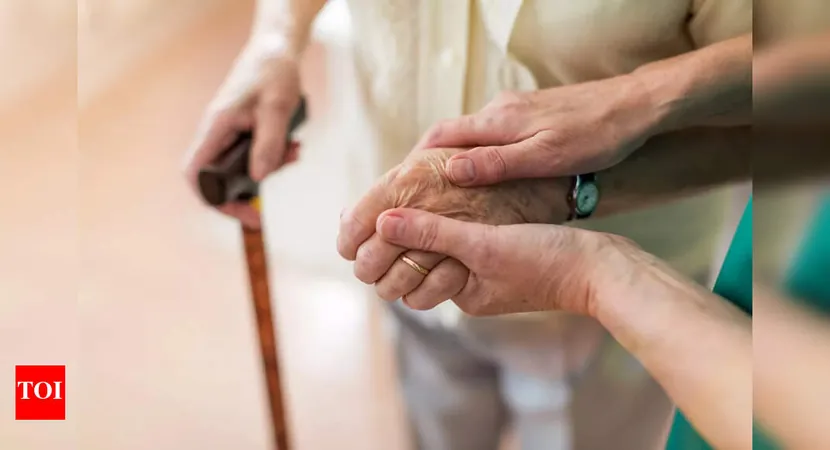
Breakthrough Study Reveals GLP-1s as Game-Changer for Kids with Obesity and Type 2 Diabetes!
2025-09-15
Author: Mei
Revolutionary Findings on GLP-1s for Youth Health
A groundbreaking meta-analysis published in JAMA Pediatrics has revealed that glucagon-like peptide-1 receptor agonists (GLP-1s) are making waves in the treatment of children and adolescents facing obesity and type 2 diabetes (T2D). After examining data from 18 trials, researchers reported impressive improvements in blood sugar levels, weight management, and broader cardiometabolic health outcomes.
An Alarming Rise in Childhood Obesity
Today, about 1 in 5 children and teenagers are battling obesity, a worrying statistic that continues to climb alongside the incidence of T2D. Historically, treatment options were limited to metformin or insulin, but recent FDA approvals have opened the door to GLP-1s, including popular medications like liraglutide (Victoza), semaglutide (Ozempic, Wegovy), and others. This shift has significantly increased the use of GLP-1 therapies among youth between 2020 and 2023.
Potential Psychological Impacts of GLP-1s
However, as GLP-1 usage rises, so do concerns about their psychological effects. Alarming statistics show that 17% of American youth report experiencing suicidal thoughts, with 7-8% attempting suicide each year. This underscores the importance of thoroughly investigating the psychological implications of these treatments.
In-Depth Safety and Efficacy Analysis
The researchers meticulously evaluated data from randomized clinical trials focusing on children and teens with obesity, prediabetes, or T2D. The study assessed multiple indicators of efficacy, including hemoglobin A1c (HbA1c) levels, fasting glucose, body weight, body mass index (BMI), and blood pressure.
Impressive Health Benefits of GLP-1s!
The results were striking: GLP-1 treatments led to a 44% drop in HbA1c levels and a reduction of 9.92 mg/dL in fasting glucose. Participants also shed an average of 3.02 kg in weight and experienced a drop in BMI by 1.45, along with lowered systolic blood pressure.
Weighing the Risks: Adverse Effects Examined
While GLP-1s showed promising results, common adverse effects were mainly gastrointestinal, occurring more frequently among users. However, there was no significant difference in rates of suicidal ideation or behaviors between those on GLP-1s and placebo.
Looking Ahead: Future Research Is Crucial!
The study authors stressed that more clinical trials and real-world studies are essential to better understand long-term effects and adherence to treatment. Continued research is vital to ensure the safety and efficacy of GLP-1 therapies for our youth, paving the way for smarter, informed health solutions.
The findings from this study signal a revolutionary step forward in addressing childhood obesity and diabetes, shedding light on potential paths to healthier futures for young people.



 Brasil (PT)
Brasil (PT)
 Canada (EN)
Canada (EN)
 Chile (ES)
Chile (ES)
 Česko (CS)
Česko (CS)
 대한민국 (KO)
대한민국 (KO)
 España (ES)
España (ES)
 France (FR)
France (FR)
 Hong Kong (EN)
Hong Kong (EN)
 Italia (IT)
Italia (IT)
 日本 (JA)
日本 (JA)
 Magyarország (HU)
Magyarország (HU)
 Norge (NO)
Norge (NO)
 Polska (PL)
Polska (PL)
 Schweiz (DE)
Schweiz (DE)
 Singapore (EN)
Singapore (EN)
 Sverige (SV)
Sverige (SV)
 Suomi (FI)
Suomi (FI)
 Türkiye (TR)
Türkiye (TR)
 الإمارات العربية المتحدة (AR)
الإمارات العربية المتحدة (AR)